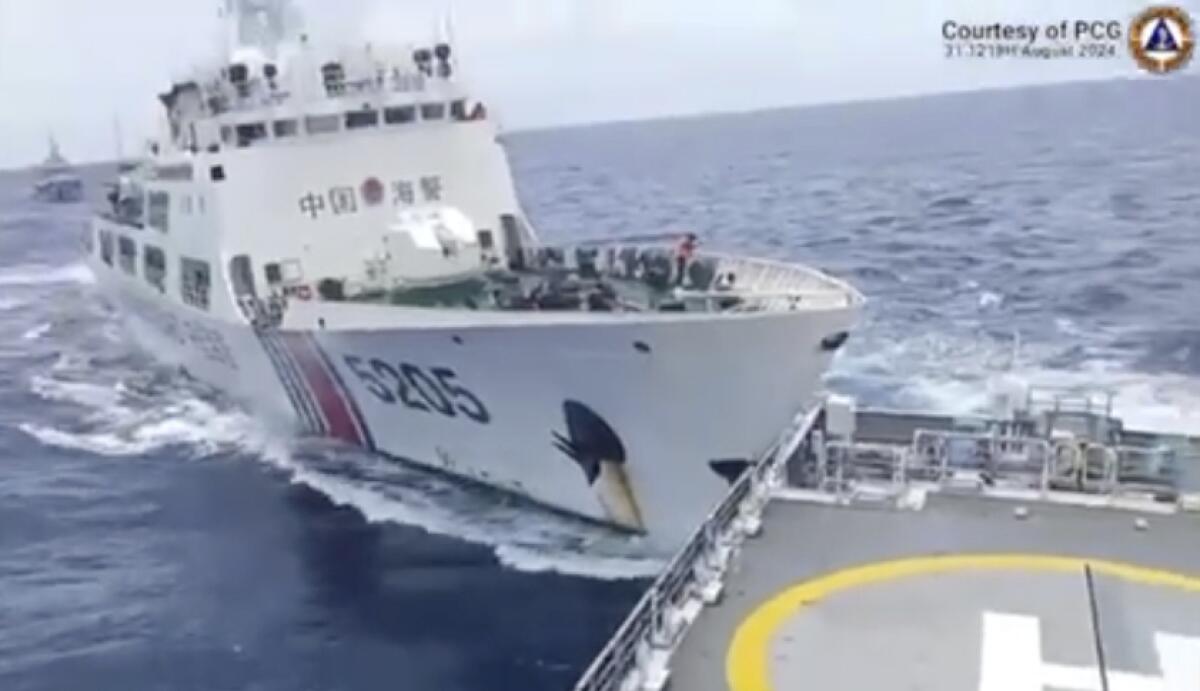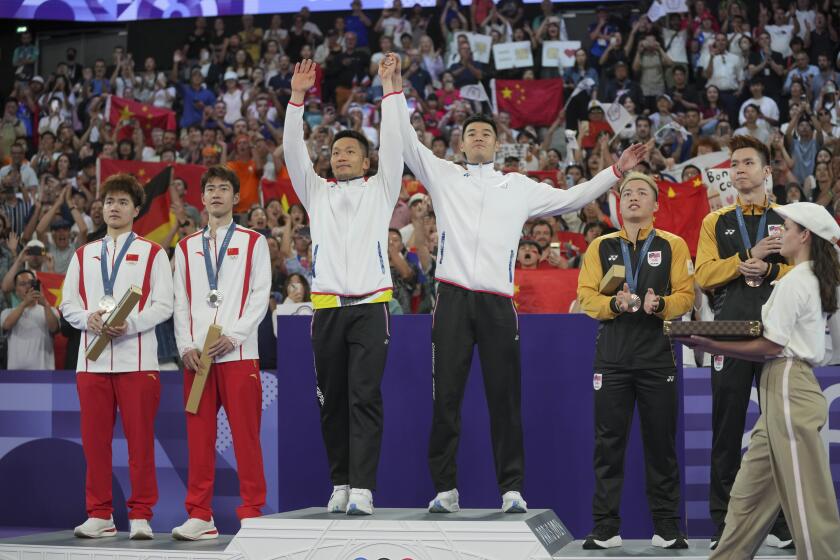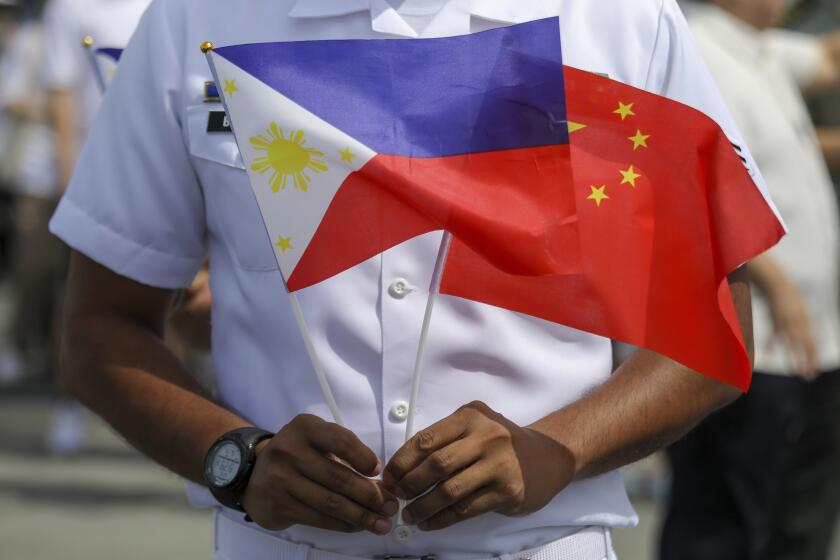Beijing accuses Philippines of deliberate collision between coast guard ships in latest flareup

- Share via
TAIPEI, Taiwan — China accused a Philippines coast guard ship of deliberately colliding with a Chinese vessel Saturday in the latest flareup of tensions over disputed waters and maritime features in the South China Sea.
In a statement posted on social media, Chinese coast guard spokesperson Liu Dejun was quoted as saying that the Philippine ship with hull number 9701 collided with the Chinese ship 5205 just after 12:06 p.m. local time Saturday.
As the Philippine ship maneuvered, it “deliberately collided” with the Chinese coast guard ship “in an unprofessional and dangerous manner, resulting in a collision,” Liu was quoted as saying, adding the standard claim that the Chinese ship was operating within regulations, without giving any details.
China is rapidly expanding its military and has become increasingly assertive in pursuing its claim to virtually the entire South China Sea, which is crucial to international trade. The tensions have led to more frequent confrontations, primarily with the Philippines, whose security the U.S. is treaty-bound to ensure. The longtime territorial disputes also involve other claimants including Vietnam, Taiwan, Malaysia and Brunei.
Taiwan’s first Olympic win this year has reignited controversy over the island’s push for self-determination against Chinese control.
China has rejected a ruling by a United Nations-backed arbitration panel that negated almost all of Beijing’s historically based claims in the South China Sea.
On Tuesday, the head of U.S. Indo-Pacific Command said the U.S. military is open to consultations about escorting Philippine ships in the disputed waters amid the spike in hostilities. Adm. Samuel Paparo’s remarks provided a glimpse of the mindset of one of the highest American military commanders outside the U.S. mainland on a prospective operation that would risk putting U.S. Navy ships in direct collisions with those of China.
Chinese coast guard, navy and suspected militia ships regularly clash with Philippine vessels during attempts to resupply Filipino sailors stationed in parts of the South China Sea claimed by both countries. As these clashes grow increasingly hostile, resulting in injuries to Filipino sailors and damage to their ships, the Philippine government has faced questions about invoking the treaty alliance with Washington.
The latest incident came days after Chinese and Philippine coast guard ships collided near Sabina Shoal, a disputed atoll. At least two vessels were reported to be damaged in Monday’s collision but there were no reports of injuries.
Sabina Shoal lies about 85 miles west of the Philippine province of Palawan, in the internationally recognized exclusive economic zone of the Philippines.
The atoll is near Second Thomas Shoal, another flashpoint where China has hampered the resupply of Philippine forces. Both countries reached an agreement in July to prevent further confrontations at the shoal.
The Philippine government says it reached a deal with China to end confrontations at Second Thomas Shoal in the South China Sea.
Also Saturday, Japan lodged a formal protest via China’s embassy against what it called an incursion by a Chinese survey ship into its territorial waters, the latest incident fueling unease among Japanese defense officials, already concerned about the growing military cooperation between the Chinese and Russian air forces.
On Monday, Tokyo also protested a Chinese military aircraft briefly entering Japan’s southwestern airspace. Chinese foreign ministry spokesperson Lin Jian said on Tuesday his country had “no intention” to violate any country’s airspace.
Bodeen writes for the Associated Press. AP writer Yuri Kageyama contributed to this report from Tokyo.
Blocked from the United States, Chinese EV makers set their sights on Southeast Asia. A Chinese automaker already surpassed Tesla as the world’s biggest seller of electric vehicles.
More to Read
Sign up for Essential California
The most important California stories and recommendations in your inbox every morning.
You may occasionally receive promotional content from the Los Angeles Times.
















